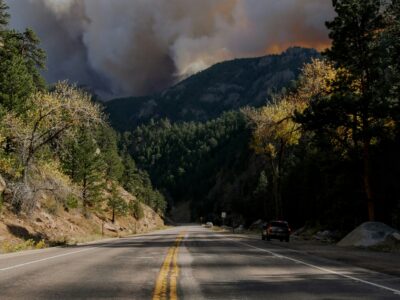Obsolete Arguments Against Climate Action
Conservatives keep repeating the same arguments, even though the world has changed.
There used to be some fairly plausible arguments against fighting climate change. I don’t mean crackpot theories about hoaxes or the “I’m not a scientist” hokum. Instead, the arguments I have in mind could be made with a straight face by serious people. I don’t think these arguments were ever truly persuasive, but they weren’t nuts.You still hear a lot of these arguments today, often from conservatives claiming to take more nuanced positions on climate change. But these arguments have gone stale over time, as the facts on the ground have shifted.
Anyone who makes these arguments today just hasn’t done their homework. Here are these ghost arguments, which are living well past the time they should have gotten a decent burial.
- “There’s too much uncertainty.” The IPCC’s first report 1990 expressed confidence that greenhouse gas emissions would cause global warming, but also found that warming up to that point had been within the range of normal variation. The most recent 2014 report – which is five times as long, reflecting a far larger body of research – found that warming had progressed to the point of being unmistakable, and well outside the range of natural variation: “Warming of the climate system is unequivocal, and since the 1950s, many of the observed changes are unprecedented over decades to millennia. The atmosphere and ocean have warmed, the amounts of snow and ice have diminished, and sea level has risen.”
- “China won’t act.” Chinese emissions rose exponentially along with its economy. China refused to agree even in principle to any caps on emissions. So it may have been a reasonable argument that U.S. action would be futile and would give China an unfair advantage. But that argument is well past its “sell by” date. In the Paris Agreement, China agreed to peak emissions by 2030 and committed to interim actions in the meantime. Change has proceeded more rapidly than expected, due to declining prices for renewables, efforts to curb deadly air pollution from coal use, and shifts in the Chinese economy away. In January, China cancelled plans to build over a hundred coal plants. It now seems possible that Chinese emissions have already peaked or will do so no later than 2025.
- “Cap-and-trade will crush the economy.” California has had an emission trading system for five years. The economy has been growing and adding jobs over the same periods. The EU and the Northeastern states have their own, less ambitious trading programs. Again, no observable economic ill-effects.
- “Renewables will break the grid.” Since they depend on the weather, solar and wind are more variable as power sources than nuclear or fossil fuels. At one time, that looked like it might be a big problem – an issue that Rick Perry seems to be trying to resurrect. But this problem is looking a lot more manageable than it used to. California utilities are required to get 33% of their power from renewables. Somehow the lights have stayed on, day and night, regardless of weather.Germany has had a huge increase in renewables without causing any decrease in grid reliability. Better grid management is much of the reason, including demand response (paying selected users to reduce power use when necessary). These techniques have their limits, and we will probably need much greater energy storage capacity at some point when fossil fuels are pushed out of the generation mix. But even without technological improvements, electric cars offer an appealing combination of low-pollution transportation and energy storage capacity.
- “Renewables are unaffordable.” The high price of renewables compared to cheap goal or natural gas seemed to pose a big obstacle to addressing climate change. The gap is much smaller today, and economic parity does not seem far away and may already have been arrived. According to a report from the World Economic Forum, Just ten years ago, generating electricity through solar cost about $600 per MWh, and it cost only $100 to generate the same amount of power through coal and natural gas. But the price of renewable sources of power plunged quickly – today it only costs around $100 to generate the same amount of electricity through solar and $50 through wind.Given the economics, it’s not surprising that in countries like India, where cost is a key consideration, more renewable capacity is being added to the grid than coal. I don’t want to exaggerate the ease of moving to a zero-carbon economy. There are still formidable difficulties – but they’re not as enormous as they looked a decade or two ago.
It’s convenient to continue believing in these arguments, especially if you’re worried about the risks of dissenting from your ideological soulmates. But ultimately, it’s the road to intellectual bankruptcy.
In short, folks, it’s time to wake up and smell the coffee.
Reader Comments
5 Replies to “Obsolete Arguments Against Climate Action”
Comments are closed.






Climate change is a fact. It is caused by humans burning oil, natural gas and coal. We don’t need fossil fuel or nuclear power. Contrary to the myth perpetrated by the greedy, dirty energy, profit addicted energy companies, we will not “starve and freeze in the dark” nor “wreck our economy” in the process of transitioning to a renewable energy economy. Go to http://thesolutionsproject.org/ for a plan to transition to safe, renewable energy by 2050 in the United States with existing technology and resources. What we are lacking is the “political will, ” because our elected leaders are owned by the dirty energy industry.
Prof. Farber, I wish you and your academic colleagues the best in your efforts to protect the human race.
Please make every effort to unite to inform, educate and motivate the public so we can all participate in this goal with the required sense of urgency.
Dear Anthony,
I believe Prof. Farber is trying to protect the human race but faces insurmountable obstacles to motivating the public with the required sense of urgency. Paris is dead, Clean Power Plan dead, greenhouse gas regulations are collapsing, seven more years of Trump.
Try to imagine the worst case greenhouse calamity and that is where we might be heading but why worry? The calamity may not happen, climate forecasts have never been very accurate, Trump will be re-elected so don’t bother. Our best choice is to adapt and try to be happy, don’t complain too much. Get a job.
BQRQ, thank you for your continuing comments.
You provide Legal Planet scholars an excellent opportunity to “inform, educate and motivate the public so we can all participate in this goal (to protect the human race) with the required sense of urgency.”
Note that the worst case (5% probability according to some calculations) suggests a tipping point due to warming causing increased water vapor (which is also a greenhouse gas), which causes more warming and hence more evaporation and more warming. The end state for this scenario is that the oceans boil away. I’m not sure what the equilibrium temperature is in this case, but it is at least such that liquid water doesn’t exist.
This might be a bit more climatic change than is readily adapted to. (And these scenarios do not take into account methane releases that would occur at much lower temperatures.)
Admittedly 5% isn’t a high probability, but when I had a boat, under my ocean marine insurance policy, I paid for coverage for “adventures of foreign princes”. This phrase covered war risk, colliding with a Canadian government vessel and similar stuff which was a lot lower risk than 5% for an open 29 foot wooden sailboat restricted to San Francisco Bay. A very serious event always has to be covered even if it is very low probability. (As a side note to to the lawyers – don’t you wish that you had gone into admiralty and could get involved in all of this obscure stuff?)